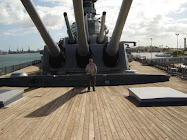In 1861, the culmination of a series of political conflicts caused the nation to spiral into the bloodiest war it ever fought, more deadly than the two World Wars, and more tragically divisive than Vietnam or Iraq. In the early years of the nineteenth century, the booming, industrial north and the mostly agrarian south constantly came into conflict on a variety of issues, most importantly that of human slavery. That fundamental disagreement boiled over into armed conflict resulting in the first modern war.
Slavery is so alien to us today that it is difficult to comprehend the countenancing of human bondage. Something that civilized people now recognize as a barbaric and inhuman scheme seemed to the rich planters of the mid-nineteenth century a profitable economic institution. Anti-slavery voices in the south were almost non-existent at the time, shouted down by slavery’s proponents. In the north, however, an abolitionist movement grew stronger by the day, led by freed slaves and Christian groups intent on ridding the country of the curse of slavery.
While wealthy slaveholders demanded the right to hold slaves, there were millions of southerners who were never slaveholders, and had no stake in the institution. The vast majority of southerners were in fact small farmers, sharecroppers, tradesmen, and the like. They lived from season to season, surviving on what they grew, purchased, or bartered, with little hope of significant economic betterment. Content to feed their families, and have a roof over their heads, they, the ordinary people, had no reason to go to war with the north. In order to provide them with a compelling reason, the wealthy landowners, slaveholders, and politicians developed the concept of “states rights” to convince the common people that going to war was in their vital interest.
Much as masses of people have been misled and duped over the millennia, so were southerners sold a bill of goods to inspire them to fight for their beloved Southland. Wars have to be sold, for the obvious reason that they are both horrendously painful and dreadfully expensive. To garner support for a war, you have to convince people they are fighting for some great purpose, such as doing God’s will, stopping Communism or Fascism, or ridding the world of a dictator’s weapons of mass destruction. Southerners were sold on the fact that the scheming politicians of the north wanted to take away their rights. Never mind that the primary right the abolitionists, north and south, wanted to take away, was the right to own human beings, which was something that affected virtually none of the people who would ultimately suffer the most. The vast majority of southerners could not afford to own slaves even had they wanted them.
The north did its share of selling as well. The Radical Republicans in the north insisted that subduing the “rebellion” was crucial to the existence of the country. What the north referred to as “rebellion” was in fact secession, a very different thing altogether. Indeed secession was something many scholars believe was perfectly within the right of any state or states at that time in our history. Our country was then (and still is) the United States, not the United State. At the time of the Civil War, when one spoke of one’s “country” it was usually in reference to one’s home state, not the Federal Union. Other states had tried without success to secede at various times, including some in the north, so the concept was not without precedent. To help sell the war, however, the north insisted that the act of secession was in fact rebellion, and had to be put down by force of arms.
There was, then, conflict among both northerners and southerners about whether the country should travel the path to Civil War. Once the die was cast, however, both sides for the most part pitched into the process with great fervor. There were cheerful pro-war songs in the south with lyrics like, “Wait for the wagon, the dissolution wagon. Hop on the wagon and we’ll all take a ride.” While on the lips of northerners were uber-righteous songs such as “The Battle Hymn of the Republic.” The nation went to the holocaust with cheerful hearts, martial music, and, for some, dreams of great personal glory. It was in essence a sort of tragic, collective errand of fools. What began with bright hope and regional patriotism would end with the death and debilitation of hundreds of thousands of young men, and the country would never be the same. As it has been said of the Civil War, “America was crucified on a cross of black.”
As the war began, virtually shining with promise, wealthy landowners, bankers, and men of other privileged classes often raised their own regiments, thereby becoming instant colonels. Some simply joined existing regiments, and obtained rank based on their financial status or political connections. The graduates of the military academies were in strong demand to fill out the officer corps, of the regular army in the north, and the newly formed regiments in the south. The men of farm and mill, however, could expect to serve their time in the army as mere private soldiers, otherwise known as “ground pounders” or “cannon fodder.” Still they came to volunteer, answering the call enthusiastically, if naively.
As a consequence, military organizations, like the famed Army of Northern Virginia, were led by the social elite, and peopled by men of common stature. The work was done, and the blood was shed primarily by what we would today call the “working class.” The landed gentry, the slaveholders, successful politicians, businessmen, and others with a substantial stake in the war, could often serve in relative comfort, or could buy or bribe their way out of service entirely. The common soldiers, on the other hand, often served in conditions, which one would not permit an animal to endure these days.
Those who chose not to serve were eventually forced to do so by the conscription laws. One could either bleed on the battlefield or bleed before a firing squad; take your choice. Men with no stake in the war, other than their perceived “rights,” bore the burden and sacrifice which rightfully belonged to the slaveholders and the wealthy.
To compound the injury, most of those men who marched off to join the struggle left families back home. Women were left with the entire responsibility of providing for their children and themselves. They also often had to provide for their soldier husbands fighting far away. The Confederate government, in particular, often failed miserably at equipping and feeding its troops. The folks back home sent clothing, canned food, and other goods to help sustain the much-deprived men in the field.
At the same time, the women were often expected to do the hard labor to keep farms running, or perform other work to generate enough income necessary for survival. They often had to deal with lawless and predatory men completely alone. Their lives were made brutally hard for completely unsupportable reasons; wealthy people wanted slaves, and politicians north and south could not come to a rational and peaceable agreement. The whole affair soon became one tragedy piled upon another.
The common soldiers may have been ignorant, but most were not stupid, and they soon saw through the façade of “states rights,” coining the term “a rich man’s war, but a poor man’s fight.” This helps to account in part for the increasing flow of deserters as the war dragged on. Men were fighting for someone else’s cause, paying the price in blood and treasure. All the while their families suffered back home. It became an intolerable situation, and as a result, both armies experienced a staggering rate of desertions.
Though the Confederates deserted in great numbers, particularly after 1862, Union soldiers took to their heels at an even greater rate. Over 200,000 Union troops deserted during the course of the war. Men literally “voted with their feet.” The men believed their families had suffered enough, and since there was little personal stigma, they often simply quit the army, and went home.
Stark indeed are the social and political divisions in the country today. Nonetheless, they pale in comparison to the divisions of the Civil War era. As poor Southerners suffered for the benefit of rich plantation owners, and as poor Northerners battled for abstract ideals, or simply for a paycheck, the societal fractures of the Civil War era were manifold. Political and moral failures led to America’s holocaust. Let us indeed hope that such failures never again lead to the fatal divisions that so traumatized America during her tragic Civil War.
Tuesday, December 16, 2008
Subscribe to:
Post Comments (Atom)








3 comments:
Very deep thoughts, Barry. As a fellow author of another Civil War book, And We'll Call Her General Leigh, and having read Scarecrow in Grey (and fully relishing it, I might add), the frustrations and reasonings behind going to war leave me completely baffled. Thanks for sharing your ponderings.
Janet Elaine Smith
I echo Janet's sentiments - very nicely done. An educational read for those who don't know the politics behind the war.
Yes, there were a number of conflicts between the industrial north and the agrarian south and the powers that be chose to focus on slavery and secession as the decisive issues, the north then crying against the rebellion, the south crying for their rights. As in most wars, those in power have an agenda that must be sold to the masses who will do the fighting. Even in WWII there were things that were "hidden" from the U.S. public in order to maintain the proper moral needed to go the distance. My own "Cherry Blossoms in Twilight" book about WWII and the Japanese civilian points this out, too. Over and over we see this, even today.
By the way, there is still slavery going on in the U.S., just secretly. It's an attitude that those who are diffent are not really human "like we are."
Post a Comment